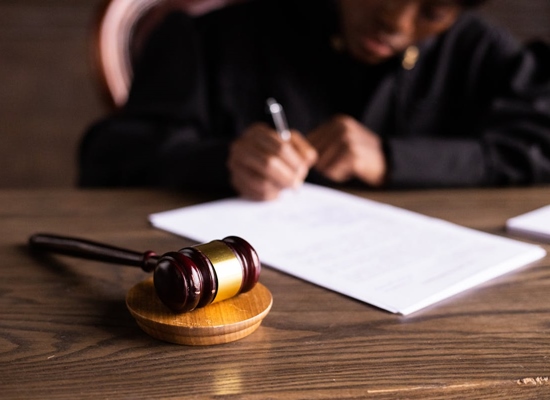Bail After a Conviction: Is it Possible
News and Resources
Post-Conviction Bail Bonding
Most people are under the impression that once their trial has reached a conclusion and a verdict has been rendered that the issue of bail no longer applies. If they made all their court dates their money (or their indemnitor’s money) will be returned and that is that. But is it? Once a person has been convicted of a crime many will file an immediate appeal of the conviction and/or the sentence. Do they have to remain behind bars while awaiting the outcome of their appeal? Or is it possible for them to obtain bail and remain free as their case enters these later, post-trial phases?
The Presumption of Innocence
As we noted at the start one of the primary purposes of bail is to reinforce the presumption of innocence. Should the person ultimately be convicted of the crime however, the presumption of innocence no longer applies. Therefore the convicted individual loses any constitutional right to bail. From that point on the question of whether they are allowed to talk to a bondsman, post what is called an “appeal bond” and go free while awaiting further adjudication of their case is left to the discretion of the court.
Denial of Bail Following Conviction
While a person who has been convicted of a crime may steadfastly maintain their innocence and file an appeal the court is officially indifferent. As far as the legal system is concerned they’re guilty and have lost the right to bail. It’s now up to the judge to determine if the person warrants being released on an appeal bond. But judges are hamstrung to a certain extent because the law stipulates that a person convicted of certain crimes may not be offered bail under any circumstance. In Jefferson County, Arapahoe County and Denver County that includes convictions for:

- Murder in any degree.
- Child abuse.
- Sexual assault that involves a deadly weapon.
- Sexual assault against a minor.
- A felony accompanied by use of a firearm.
- Any offense if the convicted person has a prior weapons-related conviction.
- Class 5 domestic violence.
- A second conviction for stalking.
- The nature of the offense and the severity of the sentence imposed by the court.
- The amount of time the convicted person has been a resident of the community.
- Family ties, employment, mental health and reputation.
- The person’s past criminal record (if any) as well as their record for making court appearances.
- Whether the convicted individual engaged in witness intimidation during the trial.
- Whether they are likely to seek retribution for their conviction.
- Whether the convicted individual is still awaiting trial on other charges.
- The likelihood of whether the individual is likely to commit other crimes if released.
- Whether their appeal is likely to succeed.
"Many jurisdictions have determined that bail should be available if a defendant's jail sentence is shorter than the amount of time it will likely take to resolve the appeal (oftentimes a year or more). Otherwise, a defendant could win an appeal after having already served an entire jail or prison sentence."
SOURCE: NOLO Legal Encyclopedia
As you can see the person who has been convicted of a crime has a much higher mountain to climb in order to obtain an appeal bond than does a person who is simply awaiting trial but has not yet been convicted. And that is as it should be. After all, the accused had their day in court and lost. Still, while there is no constitutional right to an appeal bond they are often granted if the person passes the above litmus test.
Need Help With Bail in Colorado? Call Tayler Made?
Just because you have been convicted of a crime doesn’t mean you are out of options or that you have to molder behind bars while awaiting appeal. If you or a loved one has been found guilty but have appealed the case and subsequently been granted an appeal bond by the trial judge it is time to talk to the professionals at Tayler Made Bail Bonding. We’ve helped untold numbers of persons obtain their freedom during the lengthy appeals process and we can help you or your loved one as well.
Contact Info
Tayler Made Bail Bonding is available 24 hours a day and 7 days a week.
(303) 623-0399email@taylermadebailbonding.com
3595 South Teller Street
Suite 300A
Lakewood, CO 80235
@TaylerMadeBail

